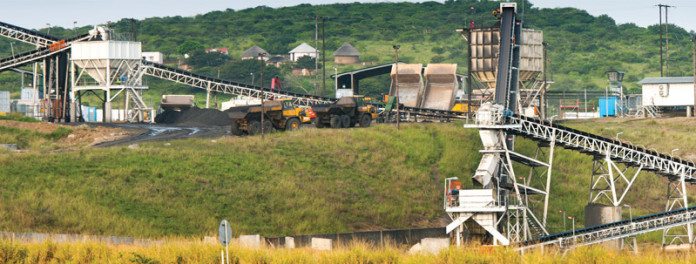
BRADLEY Doig, commercial director of mid-tier coal producer and iron ore development firm, Petmin, says they’ll be no let up in the company’s share buy-back programme having already repurchased 7% of its shares in issue in the last six months.
“I think we’re continuing to offer good value. We are cheap compared to our peer group”, he said of the 4.5 multiple on which Petmin trades to its earnings.
The problem that Doig acknowledges, however, is that Petmin, doesn’t really have much of a peer group so it’s hard to decide how the share should be performing. The share has fallen 19% over the last 12 months valuing the company at R721m.
To its credit, Petmin has consistently delivered dividends driven largely by the fact it is the largest anthracite supplier in South Africa. Its niched product from its Somkhele mine in KwaZulu-Natal is used by blue chips such as Glencore as well as Vitol, the Dutch trading company. It is also producing more thermal coal as a discard of its anthracite activities which, as a by-product, means it attracts very low costs.
Working against the stock is that Petmin has limited growth options. “I suppose we’re a single commodity producer in a single geography,” he commented. That perhaps, in a nutshell, captures the feeling about Petmin. This profile could change, however.
Petmin has increased its exposure to North Atlantic Iron Corporation (NAIC) to 40% ahead of a $250m project that will produce pig iron in the North American market. “It is a dollar based investment and we are first to market,” he said referring to the niche product NAIC will be selling in North America.
Feasibility studies have been underway on the project for several years until the collapse in the iron ore price disturbed the market. A proposal to list NAIC in North American, with a secondary Johannesburg listing, which would then be unbundled to Petmin shareholders, was also put on the back-burner.
Doig said the company is back on track now.
“We will soon hope to get the funding arranged soon. The project cost will be about $250m with maybe a bit more for contingencies. Of this, we will look to debt fund about 70%. We think we can do that with a solid project,” he said.
In the meantime, the operational focus will fall squarely on Somkhele, without which Petmin would be nothing.
Its anthracite price will fall 20% in the second half of the company’s financial – a conservative figure, says Doig, because coal qualities from Somkhele’s open cast pit will be lower. But there are plans to accelerate production from another pit. He doesn’t forsee a major slump for Somkhele.











